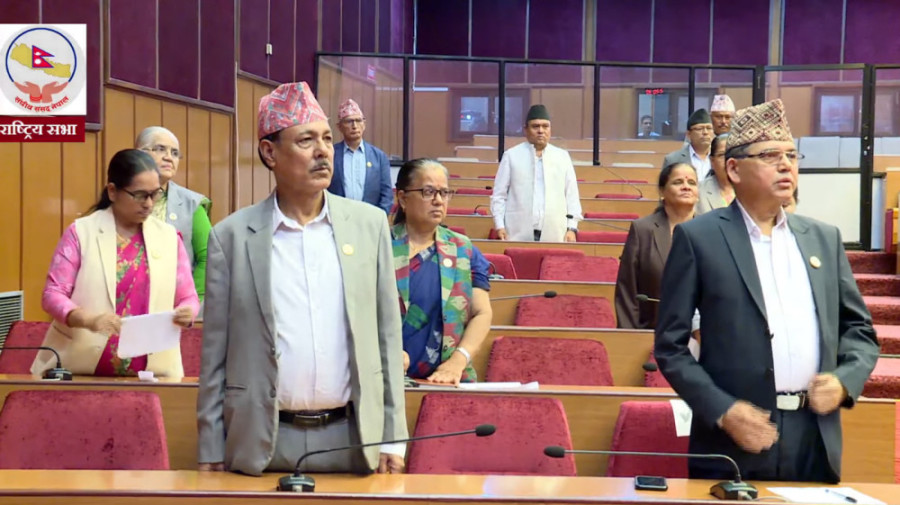Editorial
UML’s disruptive ways
The party seems to consider House disturbance the only effective way to communicate its message.
The meeting of the Lower House of Parliament was again called off on Wednesday following sloganeering from members of the main opposition, CPN-UML. The party has been continuously disrupting the House for two weeks, calling for the formation of a high-level panel on the gold smuggling case. This has rendered Parliament worthless at a time myriad issues require urgent attention. The latest disruption comes after Home Minister Narayan Kaji Shrestha spoke in the Lower House on Tuesday, committing to take the case to a logical conclusion while asking the parties to trust the Central Investigation Bureau (CIB) of the Nepal Police, which is investigating it.
The Pushpa Kamal Dahal-led government seems in no mood to cater to the UML’s demand for a parliamentary probe panel to investigate the case. The UML, meanwhile, is unrelenting and has no qualms about disrupting the House indefinitely. In a democracy, members of Parliament have the legal right to voice their oppositional views and even obstruct the House on important matters. As the main opposition, the UML is not only endowed with such a right but also has the responsibility to exercise it while being guided by a democratic impulse. But its current behaviour stems not from a genuine interest in buttressing democracy but from a Nietzschean “will to power” driven by a Dionysian impulse.
A dysfunctional parliament is symptomatic of a dysfunctional democracy. And the UML, under the leadership of KP Sharma Oli, who in the previous term tried, however unsuccessfully, to dissolve Parliament, is a history-sheeter in rendering the Parliament dysfunctional. In the Parliament’s previous session, the UML disrupted both the Houses for eight months between September 2021 and March 2022, protesting against Speaker Agni Sapkota’s decision not to expel 14 of its lawmakers who had defected to form the Madhav Kumar Nepal-led CPN (Unified Socialist). Lest there be amnesia about the UML under the leadership of Madhav Kumar Nepal (current Unified Socialist chair) himself, the party disrupted the House for 57 days in 2001, demanding the resignation of the then prime minister Girija Prasad Koirala over the infamous Lauda Air scam.
Times have changed: the UML has been reduced to the second-largest party from its earlier position of the single-largest party in the first Parliament after the promulgation of the 2015 constitution; a novice party led by youths promising a new kind of politics has made a grand entry into the House; and a royalist outfit promising to re-establish monarchy has made a rousing re-entry. This has essentially challenged the legacy of the three established parties. But what has not changed is the modus operandi of the UML, as it seems to consider House disruption the only effective way to get its message across. Of course, the three parties that have brokered power in the decade and a half of post-2006 parliamentary politics are equally to blame, as their top leaders run the Parliament egged on by their enormous egos rather than democratic ethos.
Even as the ground beneath their feet shifts in the face of a new age of politics, the three parties continuing to make the House the prisoner of their whims is utterly unbecoming. They should get the House going or be prepared to face further decimation in the upcoming elections, for the people are watching. The UML in particular is fooling no one: people easily see through its self-serving reasons for obstruction.




 13.12°C Kathmandu
13.12°C Kathmandu














